Can I Hold a Wedding on My Property? Tips and Considerations
Planning to hold a wedding on your property can be an exciting and personal way to celebrate your special day. Whether you’re imagining an at-home wedding drenched in nostalgia or envisioning a charming backyard wedding full of intimacy, there are a few things you need to know to make it all come together smoothly. Yes, you can hold a wedding on your property, but it requires careful planning and attention to local regulations.
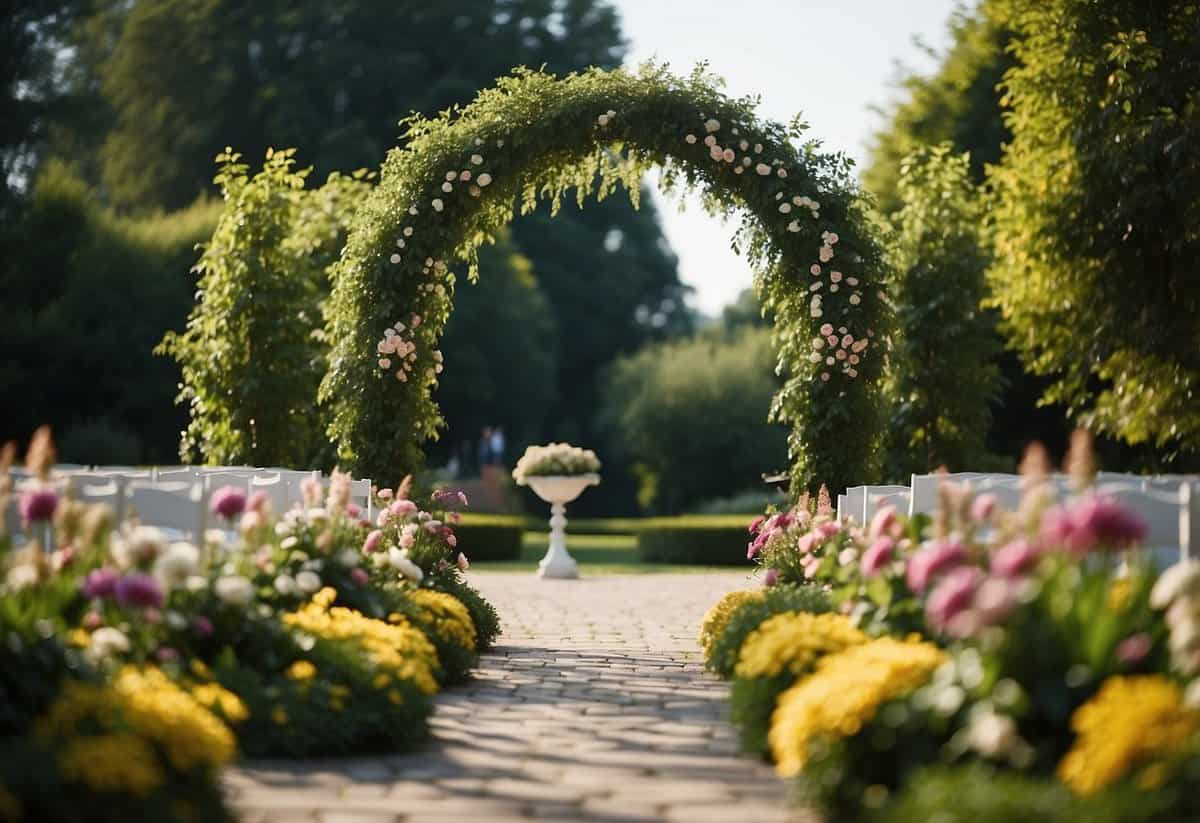
Instead of a traditional wedding venue, your property can offer a unique and personalized touch that no other location can provide. You’ll need to consider things like permits, zoning codes, and the capacity of your space. For instance, certain areas have specific permit rules for backyard weddings, and it’s important to check these regulations to avoid any legal issues.
Engaging with your neighbors is also key to ensuring that your event does not cause disturbances. Making sure there’s enough parking and managing noise levels can help maintain good relationships within your community. With the right planning, your home can transform into a wonderful venue that not only fits your vision but also provides a cozy and familiar setting for your big day.
Assessing Your Property for a Wedding
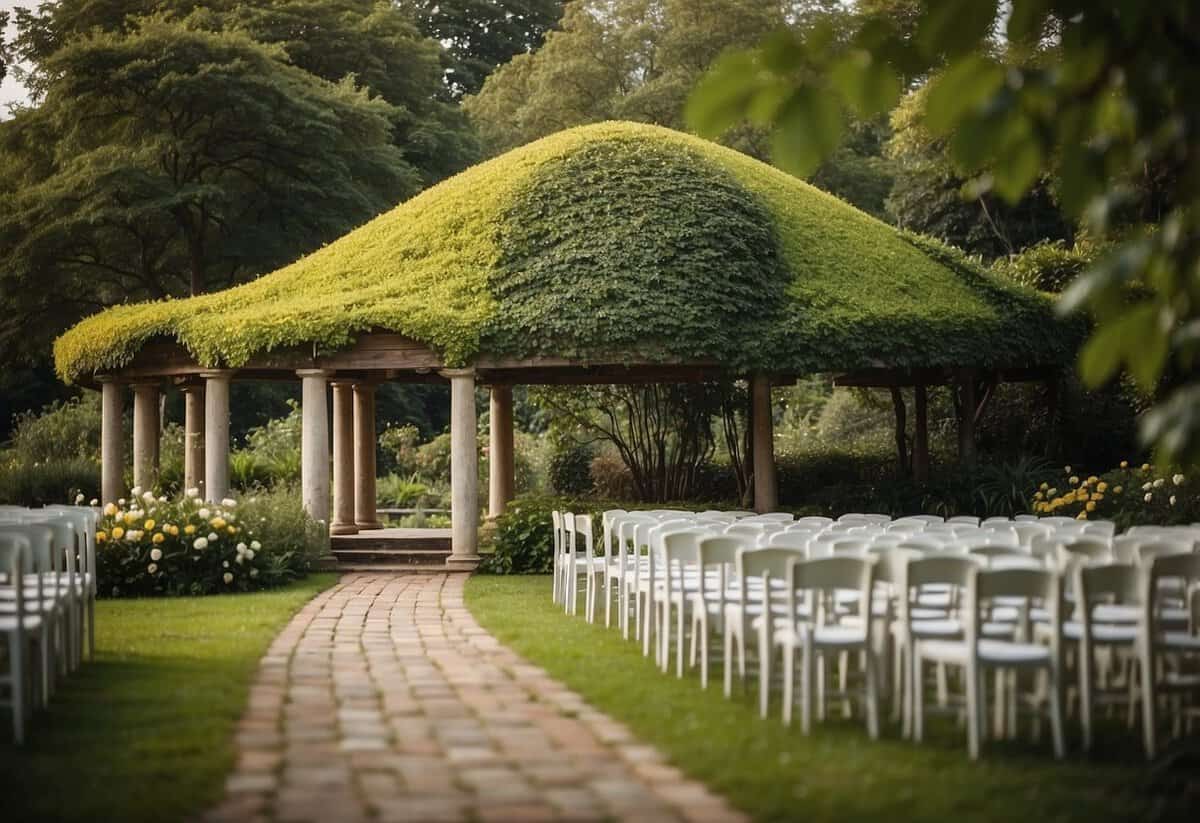
Planning a wedding on your property involves evaluating space, understanding zoning laws, and making necessary improvements. These steps ensure a smooth and enjoyable celebration for everyone involved.
Evaluating Space and Venue Potential
Start by measuring the available space on your property. Think about where the ceremony and reception will take place. Check if you have enough room for all your planned activities and guests.
If you have a barn or a ranch, these can serve as charming venues. Consider the size of these structures and whether they need any modifications. Make sure there’s enough room for dining, dancing, and relaxing areas. Also, think about parking space and whether you need to create additional spots for your guests.
Zoning and Legal Considerations
Before hosting a wedding, it’s essential to understand local zoning laws. Some areas have specific regulations on events, which could impact your plans. Check if your land is zoned for agricultural or residential use. There might be restrictions on commercial activities.
Research if you need special permits for holding an event. For example, events with more than 40 people might require a special event permit. You can find more details on zoning and legal considerations for weddings on FindLaw.
Property Improvements and Maintenance
Take a close look at your property’s current condition. Are there any areas that need repair or beautification? Consider hiring a landscape designer to ensure your property looks its best. Freshly mowed lawns, trimmed hedges, and colorful flowers can make a big difference.
Think about other improvements like installing pathways, lighting, and seating areas. For a rustic feel, you could decorate a barn or set up an open-air tent. Some of these additions, like tents, can range significantly in price. For more information, visit U.S. News.
Regular maintenance is also crucial. Ensure everything is clean and in good working order before the big day.
Financial and Legal Framework
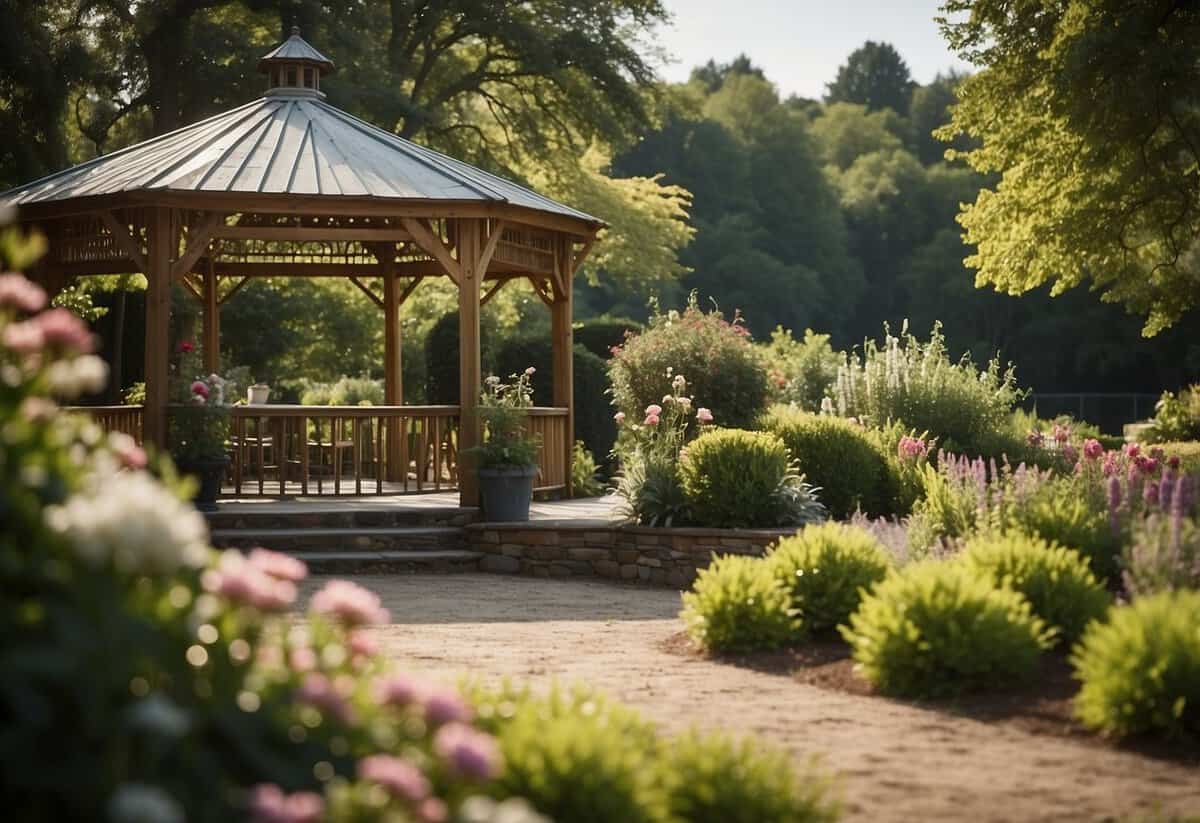
Hosting a wedding on your property involves understanding certain financial and legal aspects. You need to be aware of permits, fees, insurance policies, and contracts to ensure everything runs smoothly.
Understanding Permits and Fees
Before hosting a wedding, check with your local zoning and permit office. Some areas have strict rules about noise levels, parking, and the number of guests allowed. You may need to pay various fees for permits related to these regulations.
For instance, you might need a noise permit, which could cost up to $100. Parking permits could add $50 to $200 to your expenses. It’s essential to factor in these costs when budgeting for the event.
Important considerations:
- Noise permits for loud music or amplified sound
- Parking permits if you expect a lot of guests
- Capacity limits to avoid fines
Make sure to contact your local government office well in advance to research and secure the necessary permits.
Insurance Policies for Events
Insuring your event is crucial for protecting yourself financially. Weddings can lead to unforeseen accidents or damage to your property. Event insurance can help cover these risks.
The cost of event insurance varies, typically ranging from $100 to $500 based on the event’s size and duration. This insurance usually covers property damage, bodily injuries, and sometimes even cancellations.
Types of coverage you might need:
- Liability insurance for guest injuries
- Property insurance for damages to your home or yard
- Cancellation insurance to protect against unexpected cancellations
Speak with an insurance agent to find a policy that fits your needs.
Navigating Contracts and Agreements
If you plan to hire vendors, you will likely need to sign several contracts. These agreements protect you and the vendor by clearly laying out the terms of service, payment schedules, and what happens if either party fails to meet their obligations.
Ensure all contracts specify important details like the event date, type of service, costs, and payment due dates. An attorney can help you review these contracts to ensure everything is clear and fair.
Key points for contracts:
- Service details such as catering or photography
- Payment terms including deposits and final payments
- Cancellation policies to understand what happens if plans change
Careful review and understanding of these contracts can prevent misunderstandings and protect your interests.
Planning the Wedding Day Logistics
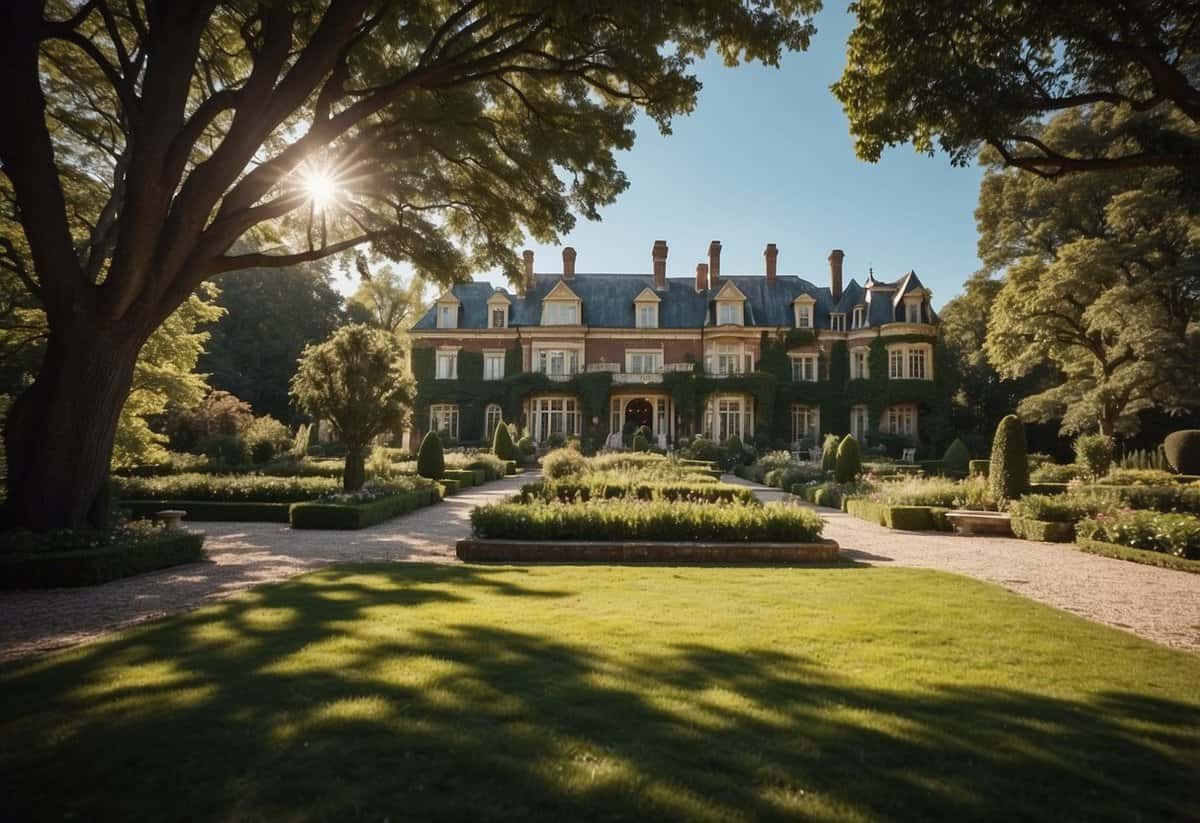
Managing a wedding on your own property involves careful coordination to ensure everything runs smoothly. Focus on vendor coordination, parking, and guest comfort to make the day enjoyable for everyone.
Coordinating Vendors and Services
It’s crucial to organize when and where vendors will arrive. Create a detailed schedule. Communicate this timeline clearly to your caterers, photographers, florists, and other service providers.
Ensure catering services have a designated spot for food prep. Consider renting a restroom trailer or portable restrooms to accommodate guests’ needs. Also, set up areas for each event, like the ceremony and reception, to make it easier for vendors to know where to go.
Parking and Traffic Management
Parking is often one of the biggest challenges. Plan for enough space to park cars without causing congestion. You might need to hire a parking attendant to direct traffic.
To ease traffic flow, create a clear map showing parking areas, entry points, and exits. Share this map with your guests before the event. Inform neighbors about increased traffic on your street. This helps avoid any conflicts or misunderstandings.
Ensuring Guest Comfort and Accessibility
Make sure your guests feel comfortable and can easily access all parts of the event. Provide shaded areas or tents if your wedding is outdoors to prevent discomfort from the sun.
Consider accessibility for guests with mobility issues. Ensure pathways are wide and flat enough for wheelchairs. A restroom trailer or portable restrooms is essential for larger gatherings, especially if your home facilities are limited. Thoughtful planning in these areas will make your wedding day enjoyable for everyone.
Dealing With Noise and Disturbance
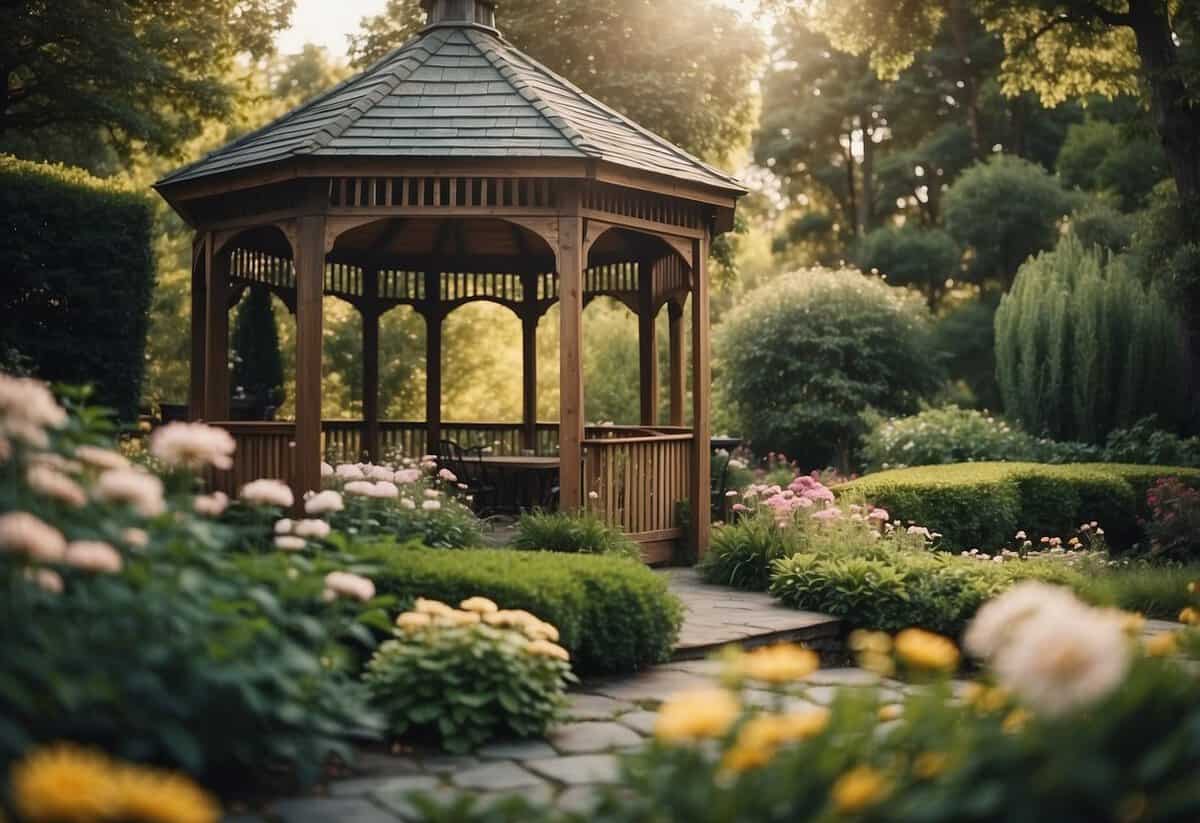
When planning a wedding on your property, it’s essential to consider how noise may affect your neighbors and comply with local laws. This includes understanding noise ordinances and taking steps to maintain good relationships with those living nearby.
Complying With Noise Ordinances
Local noise ordinances are rules set by your county or city to control disturbances. These rules often specify quiet hours, which are times when noise should be minimized. For example, loud music might be permitted during the day but not after 10 p.m.
Check with your local city or county officials to find out what the noise limits are. You may also need to get a permit for your event. The fire marshal might also have special requirements for large gatherings.
Failing to follow noise ordinances can result in fines. Make sure to inform your wedding vendors about these regulations to avoid any issues.
Good Neighbor Policies
Being considerate of your neighbors is crucial when hosting an event on your property. Start by informing them about your wedding plans well in advance. Let them know the date, time, and what to expect regarding noise.
Ensure there is adequate parking and direct your guests where to park to avoid blocking driveways or streets. You can also provide your contact information in case your neighbors need to reach you during the event.
If you’re having amplified music, keep the volume at a reasonable level. Using speakers that direct sound towards your house instead of neighbors’ homes can help. Ending your event at a reasonable hour is also important to maintain peace in the neighborhood.
By being mindful of these factors, you can host a successful event and maintain good relations with your neighbors.
Creating a Memorable and Rustic Ambiance
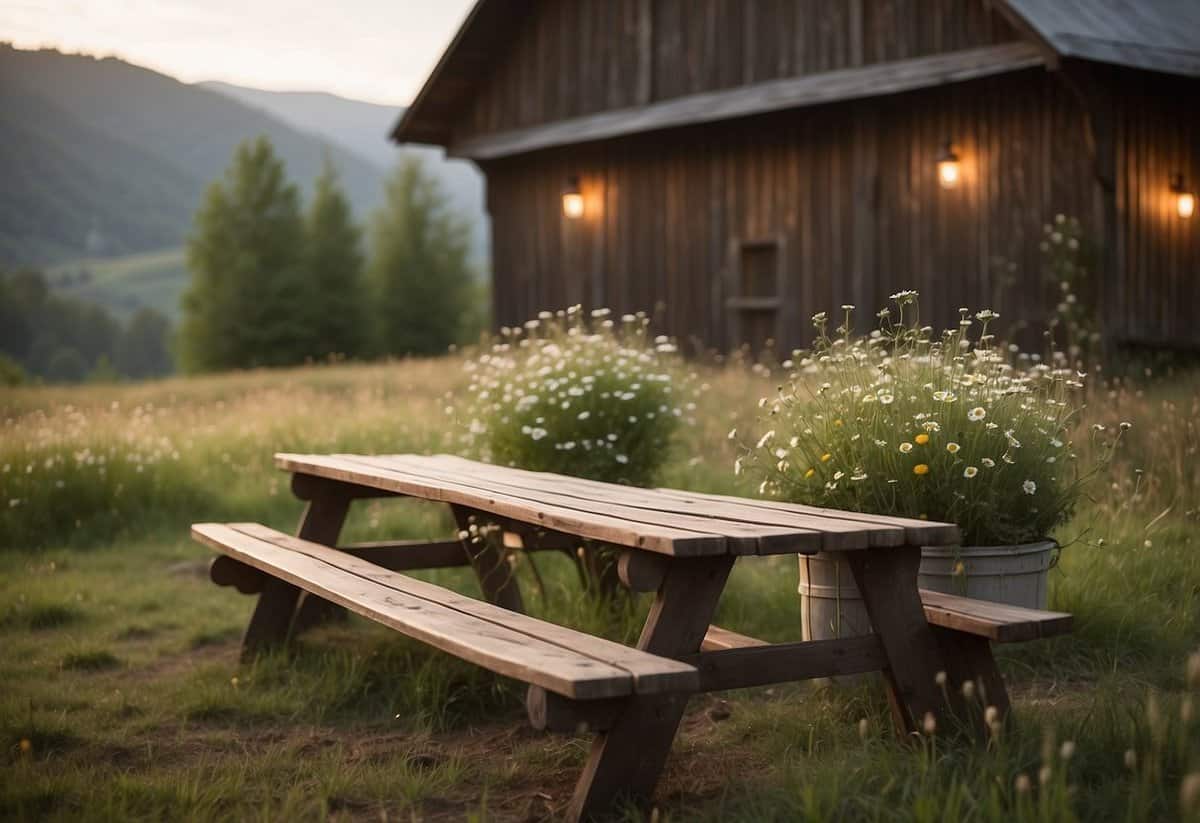
To create a memorable and rustic ambiance, you can focus on using natural and vintage décor along with soft lighting to enhance the charm of your wedding setting. Adding personal touches will make the event even more special and unique.
Decor and Lighting
Start by choosing decorations that reflect the rustic theme. Think about using wooden tables and benches or mismatched chairs. Burlap runners and lace doilies can add a vintage feel to the tables.
For lighting, string lights and lanterns can create a warm and inviting atmosphere. Hang fairy lights around trees, beams, or fences. Place candles in mason jars on the tables for a cozy touch. If your wedding is in a barn, make use of the natural structures to hang lights and decor.
Flowers in metal buckets or glass jars can enhance the rustic vibe. Simple and elegant floral arrangements with wildflowers or sunflowers work well. Don’t forget to use soft, neutral colors like cream, sage, and blush to tie everything together.
Rustic Touches and Personalization
To make your wedding truly unforgettable, add elements that showcase your personality. Personalized signs made from reclaimed wood or chalkboards can welcome guests or share your story.
Include photos of you and your partner in vintage frames scattered around the venue. A gallery wall or photo display with string lights can also be a great focal point.
Handwritten seating charts, place cards, and menus on kraft paper can provide a personal feel. You might also consider custom favors like homemade jams, mini succulents, or hand-tied bundles of lavender.
Small details like handmade napkin rings or custom table numbers can make your day unique. Remember, the charm of a rustic wedding comes from the thoughtful and personal touches you add.



